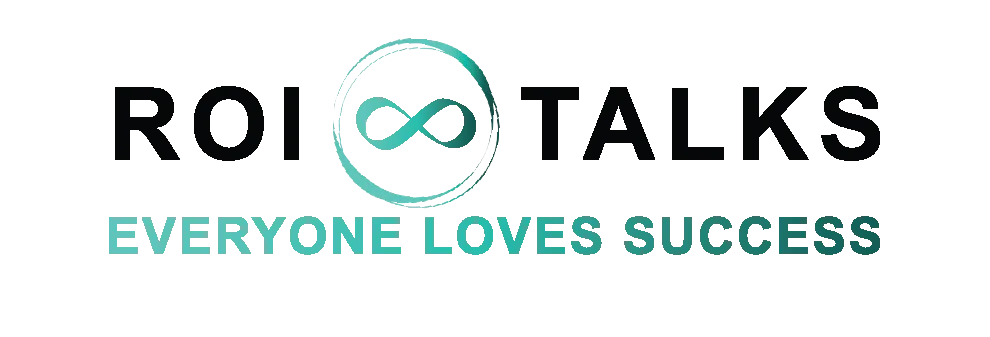Everyone Loves Success
ROI TALKS
Roi Talks Blog

3. Compassion | Soul of Sales - The Nine Universal Laws
"Ruthless Compassion" is a phrase regularly used in the business world. It is it sad to see how so-called business leaders show their ruthless actions by hiding behind such a pathetic phrase. It is these toxic individuals who may truly prove fatal to others, the organisation and their own life.
Compassion is not about having pity on others. It has nothing to do with being nice and feeling sorry for others. It never means to be disrespectful to yourself or be a yes person to the needs and wants of others. In simple terms it is about being loving, empowering, tolerant and forgiving. It is about being respectful to yourself and others without ego.
For the users of "Ruthless Compassion" please listen and see the Ted Talk by Daniel Goleman, author of Emotional Intelligence, "Why aren't we more compassionate?". As a salesperson compassion allows you know your client better and connect with them on a deeper level.
Examples of Compassionate Business Practices:
Patagonia - A clothing company that donates 1% of its sales to environmental causes and encourages customers to repair and recycle their products.
Ben & Jerry's - A famous ice cream brand that prioritizes social and environmental responsibility, and donates a portion of its profits to social justice causes.
Zappos - A popular online retailer that is known for its exceptional customer service and employee satisfaction, thanks to its compassionate company culture.
When you approach your clients with compassion, you are able to understand their needs, desires, and concerns, which helps you to build trust and establish a stronger relationship with them. This, in turn, leads to greater customer loyalty and increased sales.
True compassion goes beyond just business success. It is a fundamental human trait that is essential for building a better world. Compassion is about recognizing the suffering of others and taking action to alleviate that suffering. It is about being kind and empathetic towards others, even if they are different from us.
Compassion is often viewed as a weakness in the business world, where ruthless competition and self-interest are often prioritized over kindness and empathy. However, this view is short-sighted and can lead to negative consequences in the long run.
Research and studies show the power of compassion:
According to a study by the Harvard Business Review, companies that prioritize empathy and compassion in their business practices outperform those that do not. The study found that these companies have higher levels of employee engagement, customer loyalty, and innovation.
Another study by the University of Michigan found that compassionate leadership leads to higher levels of employee performance, job satisfaction, and organizational citizenship behaviour.
In a survey conducted by the Businessolver Foundation, 93% of employees said they would stay at a company longer if it showed compassion towards its employees.
True compassion is about being loving, empowering, tolerant, and forgiving towards ourselves and others. It is not about being weak or pitying others, but about recognizing the suffering of others and taking action to alleviate it. As a salesperson, compassion can help you to connect with your clients on a deeper level and build a stronger relationship with them. However, compassion is not just important for business success, it is a fundamental human trait that is essential for building a better world.
These companies demonstrate that compassion can be a competitive advantage in business, leading to increased profits, customer loyalty, and employee satisfaction:
In 2011, when Japan was hit by a devastating earthquake and tsunami, Toyota decided to temporarily suspend production at all of its factories to give its employees time to support their families and communities. This compassionate response earned Toyota widespread praise and helped to strengthen its reputation as a responsible and caring company.
After the COVID-19 pandemic hit, many companies had to make tough decisions about layoffs and furloughs. However, some companies chose to prioritize compassion and empathy for their employees. For example, Salesforce, a cloud computing company, announced that it would not lay off any employees for 90 days and would continue to pay its hourly workers during this time.
This all demonstrates that compassion is not only good for society but also good for business. Compassionate practices can lead to increased employee satisfaction, customer loyalty, and profitability. In contrast, companies that prioritize ruthless competition and self-interest may ultimately harm themselves and others in the long run.
Here is a framework for incorporating compassion into sales:
Listen actively: To understand a customer's needs, you must first listen actively. Ask questions and pay attention to their answers, taking the time to understand their goals and concerns. This demonstrates that you value their perspective and are interested in meeting their needs.
Show empathy: Once you have listened to the customer, show empathy for their situation. This means acknowledging their challenges and showing that you understand how they feel. For example, you might say, "I understand that this decision is difficult for you."
Provide solutions: After you have listened and shown empathy, provide solutions that address the customer's needs. Be creative and think outside the box, but always keep their best interests in mind. This shows that you are committed to finding a solution that works for them.
Follow up: After the sale, follow up with the customer to ensure that they are satisfied with the solution. This shows that you care about their success and are committed to building a long-term relationship.
Be transparent: Be honest and transparent about what you can and cannot do. This helps to build trust with the customer and shows that you have their best interests in mind.
Remember research has shown that compassionate sales practices lead to increased customer satisfaction, loyalty, and ultimately, sales. By listening actively, showing empathy, providing solutions, following up, and being transparent, sales professionals can build relationships with customers that are based on mutual trust and respect.
ROI TALKS™
Marina Plaza - Office 1004 -1006
Dubai Marina, Dubai, UAE





